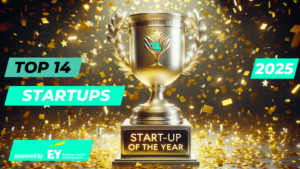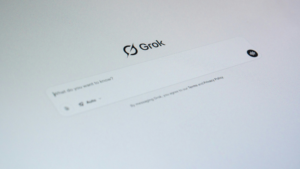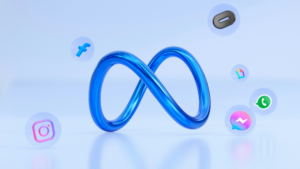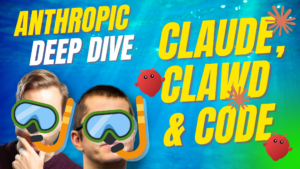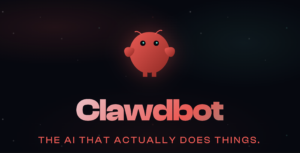Notion co-founder: “ChatGPT is a big distribution platform”

Very few people know this, but Notion is one of the tools that helps build OpenAI’s ChatGPT on a daily basis. Conversely, OpenAI and the AI hype are also having a huge impact on the productivity tool, which is currently on its way out of the start-up bubble and into the enterprise market.
In this interview, co-founder Akshay Kothari talks about Notion’s new AI agents, the relationship with OpenAI, and how and whether Google and Microsoft are seen as competitors:
Trending Topics: Can you tell us about Notion’s European expansion?
Akshay Kothari: We’ve been supporting our European customers from Dublin, and that office now has over 100 people. This year we’re opening in London, Paris, and Munich – three cities that are quite strategic to us. We’re making a bigger push to get enterprise customers, which requires us to have a presence within these cities. We were in Berlin just before this, and today we’re in Munich, which feels very vibrant, extremely enterprising, and AI-forward.
Notion started in the startup community. How do you see the transition to enterprise?
You’re right. Five years ago, we were passionately serving startups and SMBs. But something interesting happened – many of the startups we supported five years ago have become today’s enterprises. Take Monzo, for example – they went from a couple hundred employees to thousands. As we grew with them, we heard about specific things they cared about: security controls, compliance, audit logs. We’ve spent four to five years building these features. Now we have a product that the same person can use individually, but it’s also considered extremely robust and secure for companies with tens of thousands of employees.
What’s your pitch to enterprises already using Microsoft or Google?
For startups, many get a Microsoft or Google account but don’t really use the underlying productivity software – they grow up on Notion. For enterprises, it’s different. They’ve been using Microsoft and Google for over a decade. We’re not trying to replace them – we’re complementary.
For example, we released enterprise search five months ago. You can connect all your tools – SharePoint, Teams, Outlook, Jira, Salesforce – and it takes all that context to let you ask questions and get instant answers. Our value proposition for enterprises is less about moving everything to Notion and more about giving you infrastructure to automate repetitive work. These companies need to connect today’s LLMs with their internal private context, and that’s the gap Notion fills.
You previously worked at LinkedIn. What learnings did you bring to Notion?
The biggest takeaway from LinkedIn was how mission-driven the organization is. You’d hear about connecting the world’s professionals multiple times a day, from the CEO down to the newest employee. I used to think mission statements were just something you put on walls or in PowerPoint decks. But at LinkedIn, I realized it attracts the best people who are truly mission-driven, and they stick with you through good times and bad.
At Notion, we have a very unique take on AI that’s different from the big labs. The big labs talk about AGI, replacing humans, automating everything. That’s not our viewpoint. Notion’s perspective comes from Douglas Engelbart’s paper from 50 years ago called “Augmenting Human Intellect” – it’s about the bicycle of the mind. How do we make each human feel like they can do more? Our product is about giving you a team of agents that will augment your intelligence and free you from busy work to do your life’s work.
What did you learn to do differently from LinkedIn?
One thing I learned was the maniacal focus on data – everything is measured. Everyone deeply knows what drives what. We definitely try to be informed by data and run the business scientifically.
But one thing I’m doing differently: I don’t think LinkedIn makes you feel like the product has enough craft. It’s functional, but it doesn’t evoke positive emotions. It works, but it’s not delightful. From the get-go at Notion, we’ve cared a lot about craft and details. We sweat the pixels to get it right. A lot of people tell me they’ve used lots of software, but there’s something different about Notion – they feel good after using it. That comes from our ethos of design and craftsmanship.
Can you describe some of those small details that make Notion enjoyable?
Everything you do in Notion is a block. You can move text around, drop photos in, arrange them in columns. You can convert things – turn text into a to-do list or convert items into tasks in your database. Everything is built like Lego blocks – you can take a block from here and throw it there.
We have rules internally for how Notion works as a system. If you’re building a new feature, it has to plug back into this overall system. It’s like building a new Lego block that has to connect to all the blocks built before.
For example, with our Meeting Notes feature, if you just type “meeting notes” and link an event, it automatically picks up your calendar, knows who you’re meeting with, and can start transcribing. It takes your notes and the transcript, shows you its thinking process, then creates a summary – all completely hands-free. You can also customize everything – add covers, icons. Gen Z loves this because they can personalize everything.
How central are AI agents becoming to Notion?
Our business has completely transformed. Previously we were building a tool you could use to do your work. Now it’s almost like your teammate that can actually do the work – it can create docs, itineraries, database systems. It’s a meaningful transition. A lot of my time used to be spent doing the work manually. Now I just talk to the agent and it’s very reliable.
For example, I can tell the agent to look at my email, calendar, and docs, and automatically create my itinerary for my Germany trip. This is something a chief of staff would have to copy-paste from different sources. Now they can get to 90% automatically if they have access to that content.
How are you thinking about pricing with AI agents?
We’re still figuring that out. People like the simplicity of seat pricing because it’s predictable. But the new agent we launched is not cheap, and people are going to use it a lot. So I do think there will be some version of usage-based pricing.
You can imagine a future where maybe you have usage-based pricing, but the underlying functionality becomes more free. It becomes more outcomes-based – you feel like the value is added, so you use it. Most likely, the majority of users will prefer simple seat pricing, but for certain power users, there might be other ways to use agents at full capacity.
OpenAI just announced they want to integrate apps within ChatGPT. What’s your take?
OpenAI is a very strong partner to us, and they’re also a big customer – all of OpenAI uses Notion. We’re excited about the new app marketplace. They’ve tried to do this twice before with custom GPTs and the GPT app store. Building a platform is hard, but they’re persistently trying, and each year it looks more compelling.
We want Notion to be an open platform. You can work in Notion and use the agent in Notion, or use an agent in OpenAI and make things happen in Notion. ChatGPT has nearly a billion users. A lot of people ask ChatGPT questions but then want to store that information. Today it’s stored as chats, but we hope people will want to store it as docs or in databases.
Do you see ChatGPT as a distribution platform?
The consumer product is a big distribution platform. But we also use GPT-5 and Codex. The two companies work very closely as complementary, allied partners. It’s neat that the company that started this AI revolution is using Notion and Notion AI as a way to work.
There’s talk about an AI bubble. What’s your take?
We’re very excited to work on the applied AI side. We don’t have anybody working on models, and thankfully we don’t have to worry about data centers and power – we’re the beneficiaries of that. We’ve found this new form of electricity that will turbocharge knowledge work. Whether we’re overspending or underspending, I’m not the best person to answer because I’m very focused on building the best user experience.
You’ve launched mail and calendar apps. Will you complete a suite similar to Office 365?
I don’t think so. We’ll end up being complementary because our mail and calendar products leverage Outlook and Gmail accounts. Those accounts aren’t going anywhere. We invested in mail and calendar because meaningful knowledge work happens on those platforms. Having context of the docs you write, the communication you have, and the meetings you attend is extremely important for the work you do.
When you’re responding to an email, having the email client understand the context of your work in Notion becomes great for automating responses. We think of our job as connecting these work experiences, not building an alternative suite.
If you talk to startups today, they all get three tools when they start: either Google or Microsoft, then Notion, then Slack. We’re happy to be one of those three core tools, not trying to replace the suite.
What product innovations can users expect in the next 12 months?
We launched a lot three weeks ago, so the next couple of months is about fully releasing those features. The personal agent is already out to everyone, but we also released custom agents – you can spin up a new intern or coworker with focused context and autonomous work capabilities. For example, create a research report every morning at 7 a.m. about a specific topic by reading news from various sources.
There’s a lot of demand for custom agents, but it’s only available to a couple hundred customers now. We hope to roll it out to everyone by the end of the year. Beyond that, we want to go deeper – connect to more tools, enable more actions in and outside of Notion.





